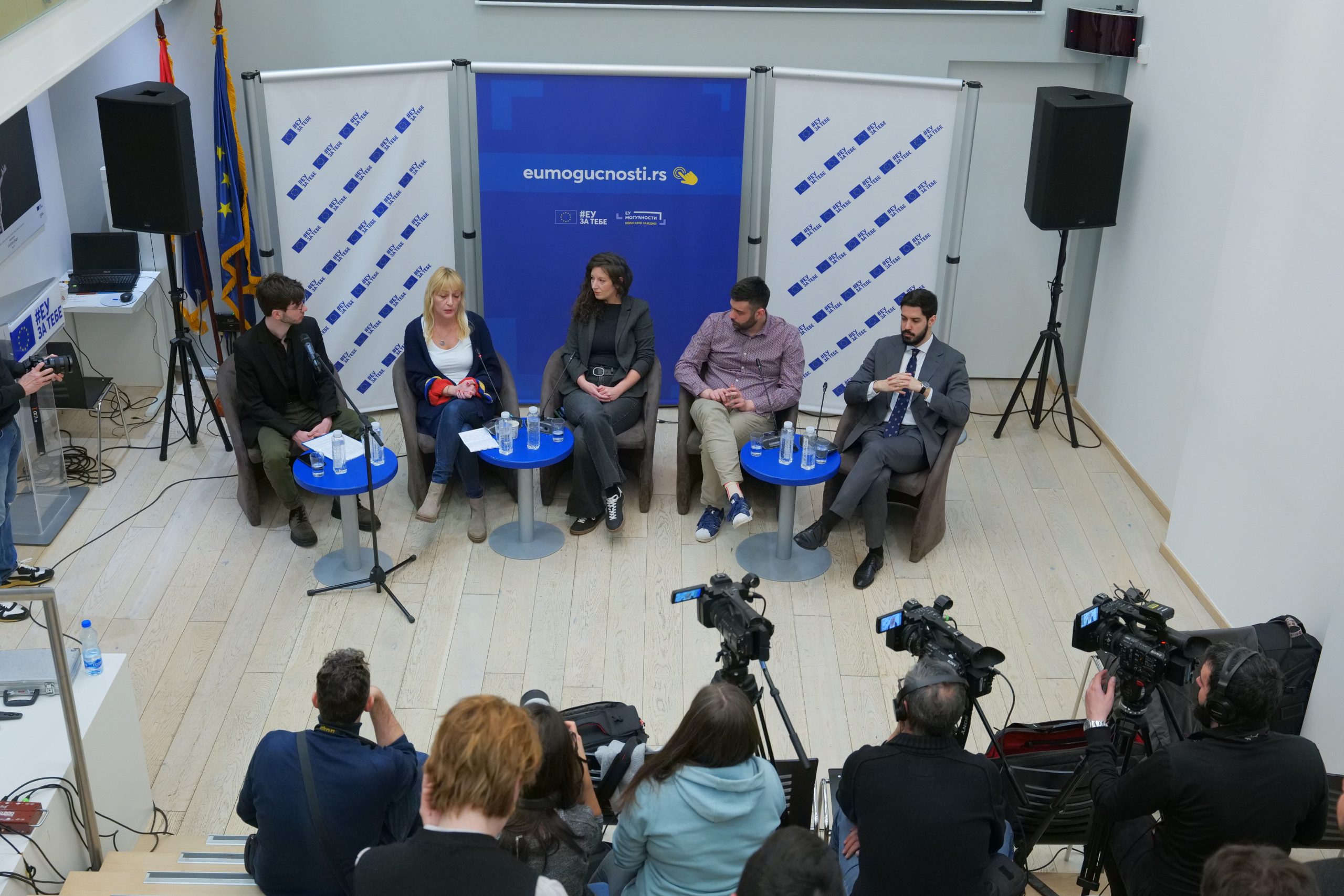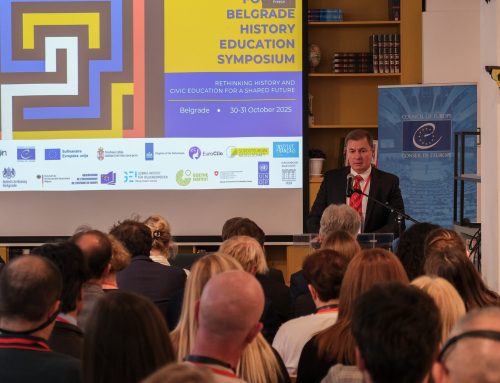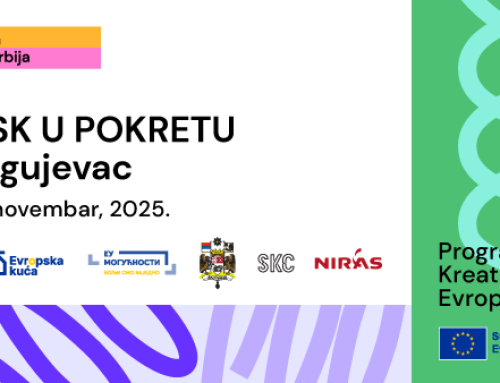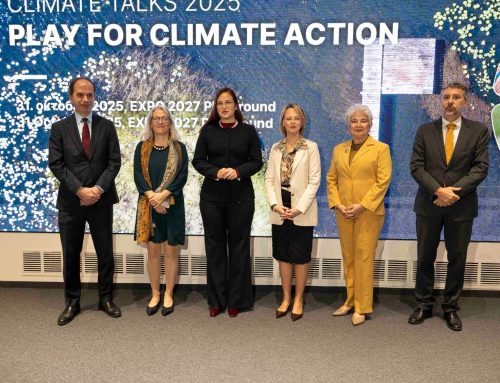On the eve of the second anniversary of the beginning of the war in Ukraine, the Delegation of the European Union organised a debate on the Serbian media reporting on the war. The participants of the debate agreed that the media coverage of this conflict in Serbia went through several stages: from pro-Russian influence, to accusing the West of a “fratricidial war”, and to the “extinction” of the topic.
Disinformation, fake news and a pro-Russian narrative marked the first two years of the war.
Journalists and editors who visited Ukraine during the war spoke at the EU Info Centre about their experience, and the New Third Way did a research on how the domestic media reported on the conflict, as well as how attitudes changed.
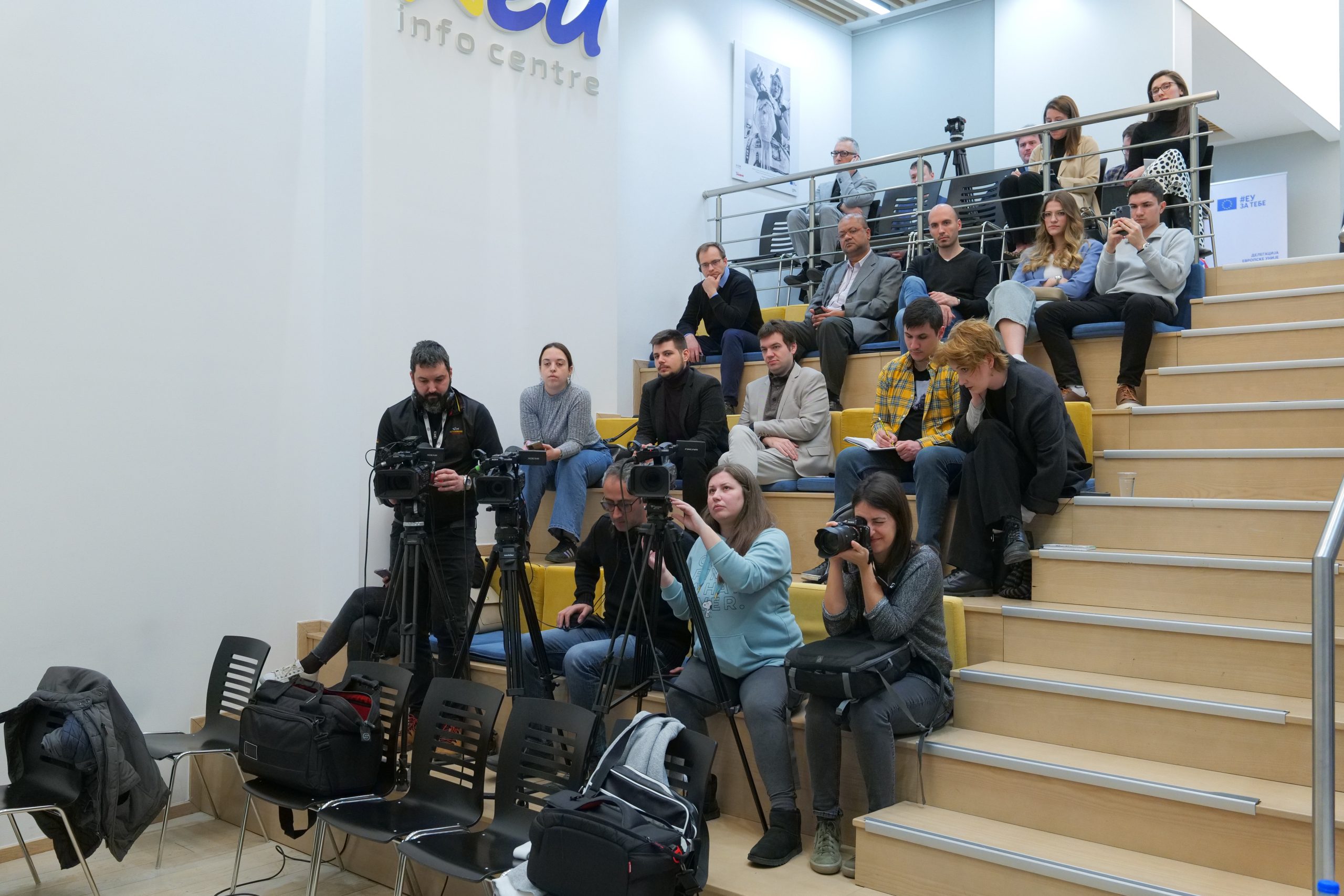
In the context of the war in Ukraine in March, April and May 2023, domestic media presented the European Union in a positive light.
“Domestic media are pro-Russian when Russia is winning, and Russian media are not read as much as they are a source for domestic media to generate topics and narratives for their own texts. In the first four months of the war in Ukraine, domestic media reported positively on Russia – not only about the war, but also about its role in global geopolitics. It’s the other way around with Ukraine, so when the positive narrative about Russia is declining, it is growing about the other side”, said Dimitrije Milić, program director of the New Third Way.
“Information from the Russian side is transmitted as facts, without verification, the Russian narrative is promoted, and the biggest problem is that there is no verified, neutral information, so the media in Serbia, as well as in the world, dissociate themselves from it”, said Nataša Ivanovski, foreign policy editor in daily newspaper Blic, at a panel discussion and presentation.
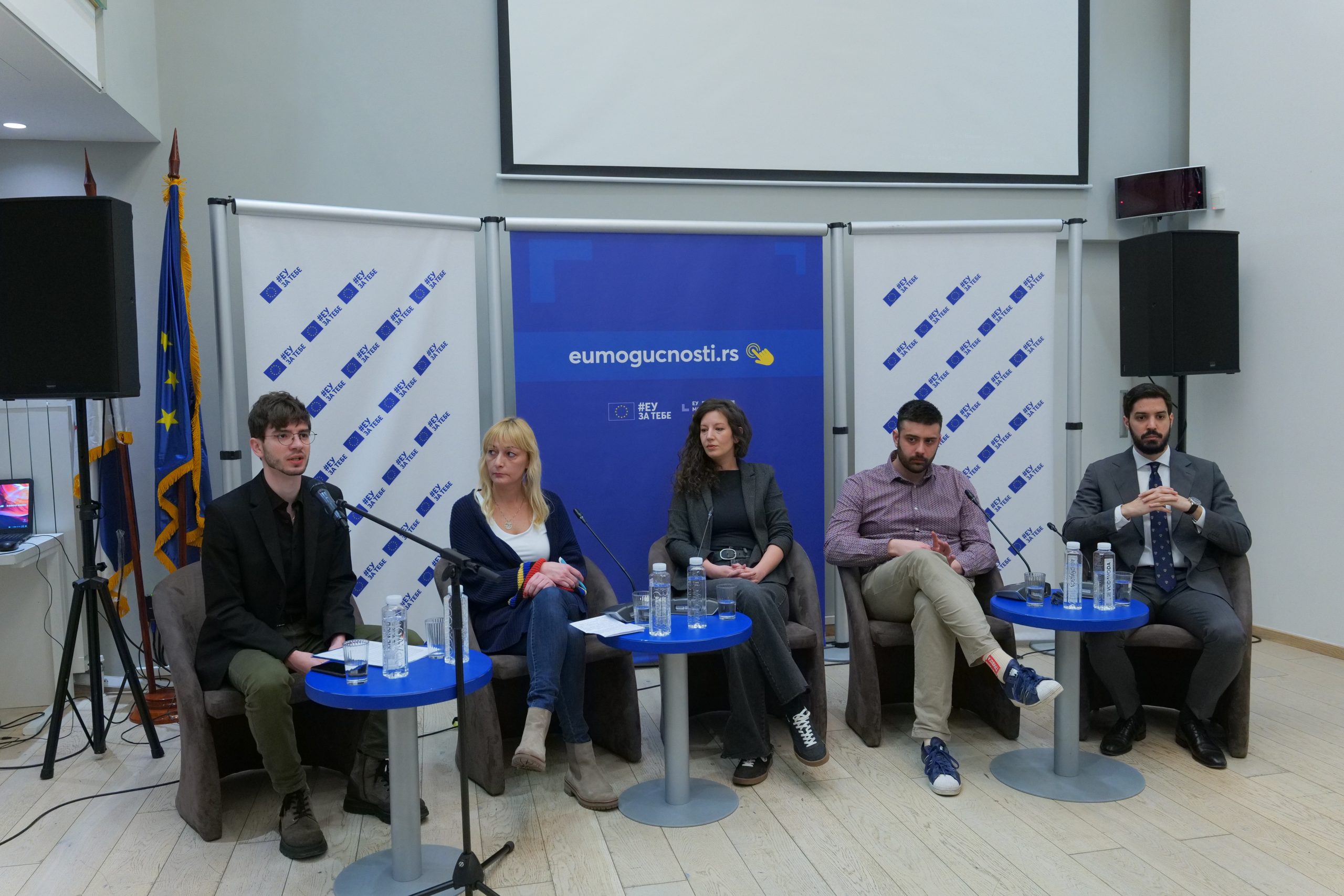
The editor of Blic added that she had no major problems, but she received threats because of her reports from Ukraine.
Ivan Subotić, a journalist and deputy editor of the FakeNews tracker, said that going to Ukraine a year after the war started and breaking fake news about the war was aimed at seeing how life is there, so himself and editor Stefan Janjić went.
There is a lot of misinformation and fake news related to the war in Ukraine, Subotić said, and added an example of satirical news that the former Prime Minister of the UK, Boris Johnson, was a candidate for a mayor of Odessa, a Ukrainian city and port on the Black Sea.
“Media in Serbia generally copy fake news from Russian news agencies without any verification and distribute them that way”, said Subotić.
The editor of Istinomer Milena Popović reminded of their research on media monitoring, in which it is stated that since 2017, the domestic media had positive coverage of Russia and negative coverage of the West.
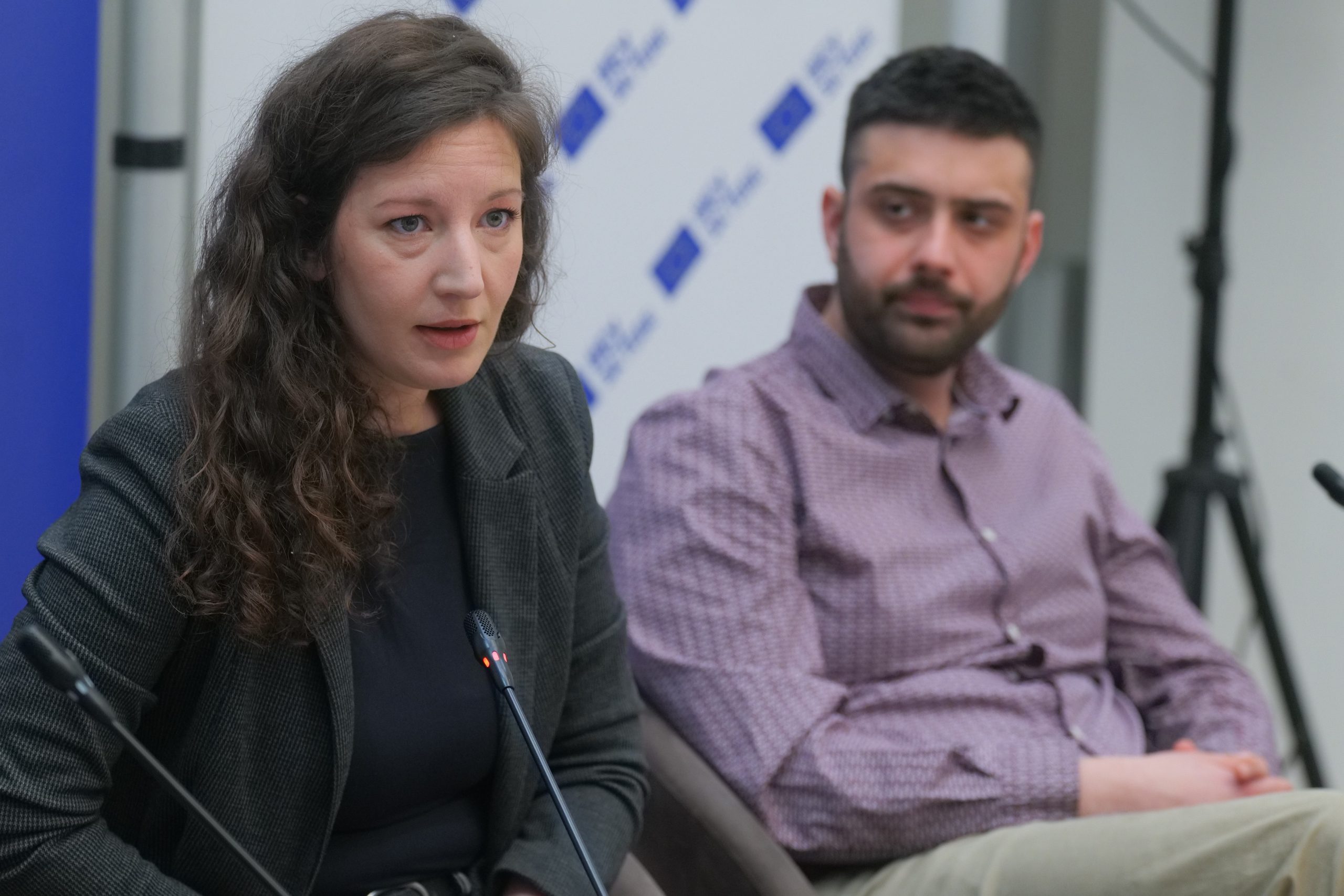
“That’s how the narrative became anti-Western and pro-Russian when the war in Ukraine started, and most of the mainstream media picked up on that sentiment. Especially on TV stations with a national frequency in the most watched morning programs, the best-selling newspapers and the most read portals”, Popović reminded.
In the first months of the war, fake news had the biggest impact – both on social networks and in the media, added the editor of Istinomer.
On February 24, 2022, Russia attacked Ukraine, and the European Union reacted quickly and strongly, with unprecedented support for Ukraine and with the largest sanctions package.
More information:

